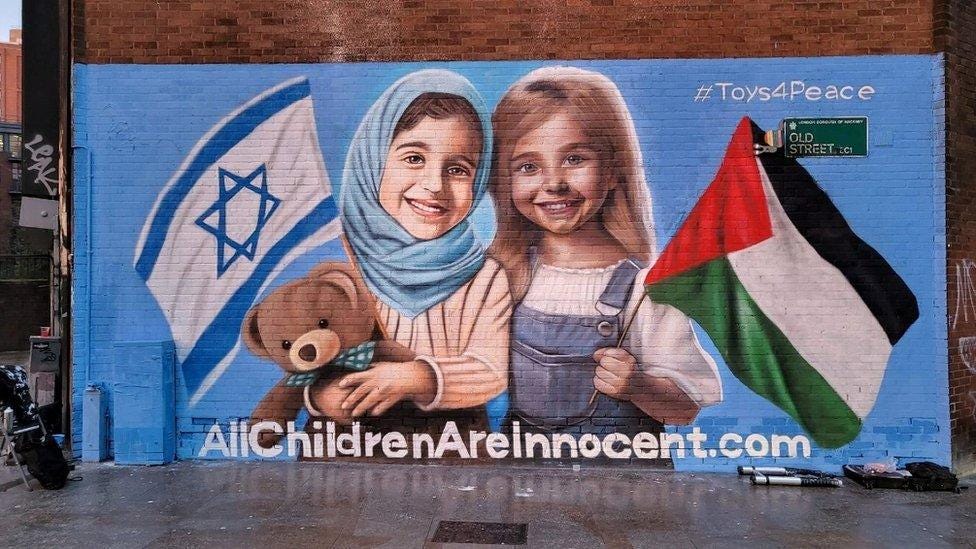Achieving Lasting Peace in Gaza: A Call to Conscience and Common Humanity
In the face of human suffering, silence is not neutrality, it is complicity. Nowhere is this more evident than in Gaza, where decades of violence, occupation, blockade, and political failure have bred a deep and enduring human tragedy. The urgency to bring about a just and lasting peace is not simply a regional imperative, it is a moral responsibility shared by the global community.
Peace is not a passive state. It is a deliberate, painstaking process that requires vision, courage, and compromise. It is built not only through treaties and accords, but through the daily practice of dignity, justice, and mutual recognition. In Gaza, as in all places of conflict, we must begin by recognizing a simple truth: that every child, whether born in Tel Aviv or Khan Younis, deserves the same right to grow up in safety and hope. There needs to be an end to collective punishment.
The siege of Gaza, now well over a decade long, has turned this small strip of land into an open-air prison. Access to clean water, medicine, electricity, and education, basic building blocks of human development has been deliberately restricted. This is not a path to peace. It is a generator of resentment and despair.
Security cannot be achieved by depriving millions of their basic rights. Rather, the lifting of the blockade, with necessary security assurances for both sides, must be seen not as a concession but as a prerequisite for peace. A people denied their dignity will not be easily pacified. There needs to be honest and inclusive dialogue
No resolution will endure if it excludes the very people most affected by the conflict. We must move beyond the narrow confines of political convenience. That means bringing all relevant Palestinian voices to the table, including those that may be difficult to hear. Dialogue does not require agreement, but it demands recognition. Ignoring key actors has never been a recipe for sustainable peace.
Likewise, Israeli society must be engaged in a conversation not solely about security, but about justice, about occupation, and about what kind of future it envisions for its neighbors and itself. Justice is the foundation of reconciliation.
True reconciliation is not forged through amnesia or avoidance. It is born of truth and justice. Allegations of war crimes, on all sides, must be investigated by impartial bodies. Victims must be seen, their grief acknowledged, and their humanity affirmed.
The international community has a critical role to play in upholding international law. Not selectively, not sporadically, but consistently. We cannot preach the virtues of human rights in one part of the world and excuse their violation in another.
We need to invest in hope. Even in the darkest hours, peace is possible. But it requires investment not only in physical reconstruction but in the rebuilding of trust and opportunity. The people of Gaza need jobs, they need schools, they need freedom of movement. They need to see that a life beyond war is not only imaginable, but achievable.
Youth, in particular, must be at the heart of this effort. A generation that has known only siege and airstrikes must be offered a different story to tell. One not of trauma and revenge, but of possibility and purpose. We need a shared future, not a zero-sum game. The land between the Jordan River and the Mediterranean Sea is home to two peoples with deep historical and spiritual ties. Their destinies are inextricably linked. Peace cannot come from the domination of one over the other, but from the recognition that security and dignity are mutually reinforcing, not mutually exclusive.
The dream of two states living side by side in peace must not be abandoned. Nor should we succumb to cynicism or fatigue. History shows us that conflicts long thought intractable from Northern Ireland to South Africa can be overcome with leadership, patience, and persistence. We may have different religions, different lalanguages and people with different colored skin, but we all belong to one human race. The suffering in Gaza is not an abstract problem. It is a stain on our shared humanity.
Let us be clear that peace is not merely the absence of war. It is the presence of justice. Let us work, together, tirelessly, to bring that justice to Gaza and through it, a peace that is not fragile and fleeting, but just and enduring.




